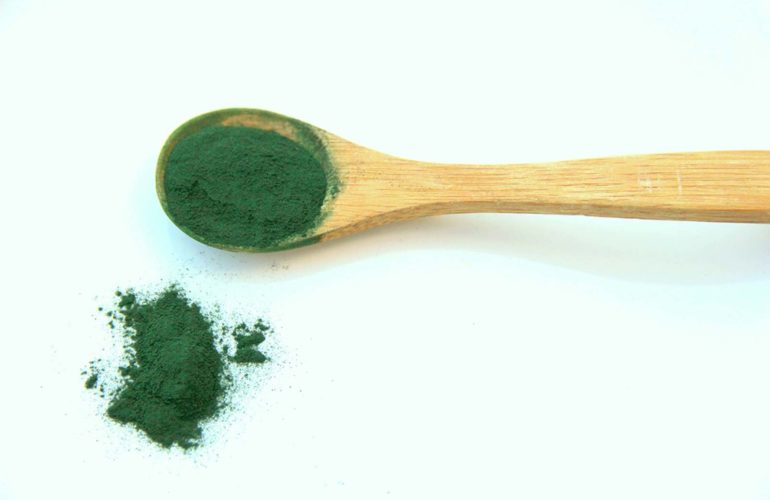Spirulina is one of the world’s leading natural supplement. It is known as the most nutritious and protein rich plant food. Spirulina is loaded with numerous nutrients and antioxidants that benefit the body and brain. Let’s see what is spirulina all about.
What is it ?
- Spirulina is the world’s most popular super food and natural supplement
- It is a superfood and is highly nutritious
- Spirulina is a microorganism that grows in both fresh and salt water
- It is a type of cyanobacteria aslo referred to as blue green algae
- NASA proposed that it could be grown in space for use by astronauts. After this, spirulina became very popular and well known across the world
What does it have ?
- A single tablespoon of spirulina (7 grams) contains 4 grams of protein
- This is roughly 60-65 % protein, which is the highest in any plant food in the world
- The quality of protein in spirulina is excellent, comparable to eggs
- It provides all the amino acids your body needs
Nutritional value of 1 table spoon spirulina
- Calories : 24
- Carbs : 1 gram
- Fat : .78 grams
- Vitamin B1 : 11 % of RDA
- Vitamin B2 : 15 % of RDA
- Vitamin B3 : 4 % of RDA
- Copper : 21 % of RDA
- Iron : 11 % of RDA
Ayurvedic properties
- Quality : Light, Dry
- Digestion : Easy
- Taste : Salty and Bitter
- Dosha : Pacifies Kapha, May increase Vata and Pitta
- Tonic : Strength, digestion, blood, anti inflammatory
Health Benefits
- It is very powerful anti oxidant
- It is high nutrient, low calorie food which helps you lose weight
- It boosts your metabolism
- It supports your mental health
- It can lower bad triglyceride levels
- May help reduce blood pressure
- May be effective against amemia
- May improve muscle strength and endurance
- May aid blood sugar control
- Has anti inflammtory properties
How to consume and how much to consume ?
- Spirulina is available in powder, capsule or tablet form
- A standard daily dose of spirulina is 1-3 grams
- Doses upto 10 grams daily have been used effectively
- As a powder, you can add it to water, smoothies, on salads or in soups
- You can even add it your fruits and juices
Who should avoid ?
- It is not for pregnant and lactating women
- When consumed in large quantity, it may cause headaches, allergic reactions and insomnia in some cases
- People suffering from any illness, allergies to sea food or seaweed should consuly a physician before consuming
- Avoid it if you have a thyroid condition or autoimmune disorder, kidney stones
- Quality is very critical when it comes to spirulina
- Because it is essentially an algae, it can be contaminated by toxins in the sea just like any other seafood
